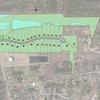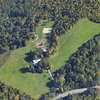New Scotland GOP turns Election Night into nailbiter, but story ends in familiar fashion: Dems on top, again
NEW SCOTLAND — Democrats facing Republican opposition on Tuesday breathed a sigh of relief after unofficial vote tallies from the Albany County Board of Elections revealed New Scotland voters prefer the near-one-party rule they’ve lived with for almost two decades.
Four Democrats turned back challenges from four Republican newcomers seeking the supervisor’s job, town clerk position, and two seats on the town board. But the GOP isn’t ready to concede anything just yet, claiming there are still absentee ballots left to be counted, enough at least to flip a couple of Tuesday night’s unofficial results in their favor.
Supervisor Douglas LaGrange faced his first-ever opposition this year from Republican Erik Grissell. The incumbent LaGrange received 1,673 votes compared to Grissell’s 1,381, an approximate 55 to 45 percent win for Democrat.
LaGrange’s win was a blowout compared to the rest of the races Democrats won on Nov. 2
Incumbent town board Democrats Adam Greenberg and Dan Leinung respectively received 1,529 and 1,541 votes to the 1,450 ballots cast for Charissa Mayer and 1,442 votes received by Peter Drao — a roughly 26 percent to 24 percent win for each Democrat.
Just 22 votes separate Democrat Lisa Willams and GOP-backed Conservative Lori Dollard in the race for town clerk, with Williams receiving 1,536 votes to Dollard’s 1,514.
New Scotland’s Democratic town judge, Robert Johnson, and its highway superintendent, Ken Guyer, faced no opposition on Nov. 2.
This year’s general election is the second-straight in which Republicans have held their own against Democrats, no small feat considering the GOP is out-enrolled by 1,159 voters — 2,881 to 1,722.
In 2019, incumbent Councilman William Hennessy was the top vote-getter with 1,474 votes, about 31 percent of ballots cast; and first-time candidate and then-zoning board member Bridgit Burke was second with 1,268 votes, about 26 percent of the vote; while Republican Timothy Stanton earned 1,123 votes, about 23 percent of ballots cast; the fourth person in the race, Republican Glenn Schultz, received 935 votes, about 19.5 percent of the vote.
Supervisor
Asked if Tuesday’s outcome was closer than he thought it would be, LaGrange said it was “closer than it should have been.” Because, he said, “an unknown comes to town and runs on what we’ve already done; it shouldn’t have been that close,” he said, adding he thought turnout might have been an issue as well.
LaGrange received 1,673 votes on Tuesday, an approximate decrease of 16.6 percent in his overall vote-count compared to two years ago, and a nearly 32-percent drop compared to 2017 — both elections when he had been unopposed and appeared on three different ballot lines.
Grissell received 269 Conservative votes that would have likely gone to LaGrange in past years, and turned what would have been a decisive 18-point victory for LaGrange — if the two men were to appear only on their parties’ respective lines — into a decent showing for a first-time candidate running against an otherwise popular supervisor with a long record of winning big as both a Democrat and Republican.
Grissell did not return a message seeking an Election Night interview.
LaGrange maintained that he and his fellow incumbents “presented well,” noting the GOP candidates had been on the stump since June. “That was a lot of work for a loss, so I guess I got to look at it that way,” he said with a laugh.
Asked if he thought the Republican gains in the most recent elections could be attributed to a general apathy toward the town’s long-term incumbents, LaGrange reiterated his earlier point about receiving fewer votes in 2021 than in either of the previous two elections. But he then said he either “lost votes or people didn’t come out this time,” both of which could be helped if the current board were a little more boastful.
“I think all the things that we’ve done: bringing in the small businesses, preserving open space, keeping taxes low, you know, providing all the services we did throughout COVID. All those things that we've done,” LaGrange said. “I mean, maybe we’ve got to, maybe we’ve got to brag more, for lack of a better way to put it. You know, you just do your job and you expect it to be recognized. And maybe we should do a better job of advertising what we’re doing.”
Town board
Mayer told The Enterprise on Tuesday night she had thought it was too early to declare defeat, because absentee ballots had yet to be counted. “So we really need to pause before we say what’s final is final,” she said.
Nov. 2 was the last day for absentee ballots to be postmarked for this year’s election. The ballots have to be into a voter’s local board of election no later than Nov. 9 to be counted. Democrats estimated there were fewer than 200 absentee ballots to be counted, and noted some of those ballot recipients had already voted in person.
Mayer did say she’s “very happy with the results so far,” noting she and Drao are “neck and neck” in the ballot count with their Democratic counterparts. She and her fellow Republicans had a lot of support in this election, a consequence, Mayer said, of knocking on every door in New Scotland.
“Not only that, I called them” to remind them to vote, Mayer said.
Leinung said he thought Tuesday’s results were a “little bit” closer than what he expected. And, while he thought he and his fellow Democrats “really worked our butts off,” out on the stump, he credited the Republicans with doing the same.
The GOP candidates “have been very active this year,” Leinung said, “I have to give them credit; they did a great job.”
Leinung said was interested in seeing the Republican turnout for this election, noting the party in general is “very motivated across the country” right now, pointing to the New Scotland Republican Committee’s cash-haul this cycle to further his point.
When he first ran in 2017, Leinung garnered 2,101 votes, a little under 41 percent of ballots cast, compared to 1,541 this year, while noting Tuesday’s results illustrated the importance of a candidate receiving third-party backing.
Drao and Mayer, respectively, received an additional 290 and 303 votes because of their names appearing on the Conservative line. When he had the Conservative Party’s backing in his 2017 bid, Leinung received an additional 487 votes because of it.
Drao did not return a message seeking an Election Night interview.
Greenberg wasn’t surprised by Tuesday’s tight outcome.
“I think there was a lot of energy out there,” Greenberg said. “I think the Republican Party was very well-funded, [and] did a lot of work. And it’s an off-year election, so you are never sure about turnout.”
Republicans cast an additional 180 votes for their town board candidates on Tuesday compared to two years ago, but it was the GOP winning the Conservative line in June that made Tuesday such a nailbiter, with just 1.33 percentage points separating the second-place Greenberg and third-place Mayer.
With another four-year term likely, Greenberg is looking forward to getting back to work on a few of his signature issues, like the Hilton barn, Community Choice Aggregation, as well as some more recent projects that have come before the board, like the grant the town just received to map its natural resources.
And “we’re not done with the COVID issues that the town’s been dealing with,” he said, adding there are “always budget issues” to tackle as well.
Campaign funding
Since the 2019 election, the New Scotland Republican Committee has taken in about $14,400 in contributions, according to its filing with the state Board of Elections. Two years ago, Republicans raised about $3,860 from the period just after the 2017 general election until the November 2019 election. For the two years preceding the 2017 election, the GOP took in $5,360, according to election filings.
A quarter of the GOP’s haul this election season is attributable to the largesse of a single, long-dormant campaign committee.
The Republicans in September 2020 received a $3,664 transfer-in from the campaign committee of the Friends for Vince Perry, a Voorheesville native who graduated from Clayton A. Bouton High School in 1983. In 2015, Perry was a candidate for the Albany County legislature, when ran in the 25th legislative district, which covers Loudonville and West Albany, and lost to the Democratic incumbent. Since 2015, the committee associated with Perry’s candidacy did not receive or distribute funds to another candidate or committee, until September of last year.
While the Republicans appear to favor a centralized funding structure, New Scotland’s Democrats and their committee have opted for more of a hybrid model, where both the candidates and party raise funds, with the candidate money ultimately being funneled back into the committee’s coffers.
Until Nov. 1, it appeared as if the town committee hadn’t taken in a dime in nearly two years, an observation that was brought to the attention of Chairwoman Crystal Peck, who explained the trouble she had with the state Board of Elections’ new public reporting system, not realizing she hadn’t filed the party’s 11-day and 32-day pre-general election disclosure forms.
Peck told The Enterprise that the committee had raised about $4,600 this cycle, which is combined with the $2,100 Leinung has taken in since the last election, LaGrange’s approximately $3,900 worth of donations received since 2020, and the $1,000 Greenberg estimates he received — like Peck, Greenberg said he had issues with the state Board of Elections’ public-reporting system.
This cycle, the Democrats have received about $11,600 in campaign contributions. For the two-year period preceding the 2019 election, the party received about $6,600 in contributions; while LaGrange did not appear to fundraise, Hennessy received $550, and Burke did not have a campaign committee.
Clerk
Williams said she did not “know what to expect” coming into Tuesday, offering a subdued observation that “it’s gonna be what it’s gonna be.”
In contrast, Dollard told The Enterprise by email that it was a “very exciting night. Looks like the absentees will make the determination. Thank you to everyone who voted!””
Unlike Greenberg, Leinung, and, to a lesser extent, LaGrange, Williams is the rare elected official whose position is almost entirely administrative, except for a few weeks every couple years when the job is political.
While Williams has been town clerk for almost a year now, this was her first election. She was appointed late last year when Diane Deschenes retired half-way through her tw0-year term. Only once did Deschenes have an opponent: the first time she ran, which was followed by election after unopposed election where she was often the night’s top vote-getter .


